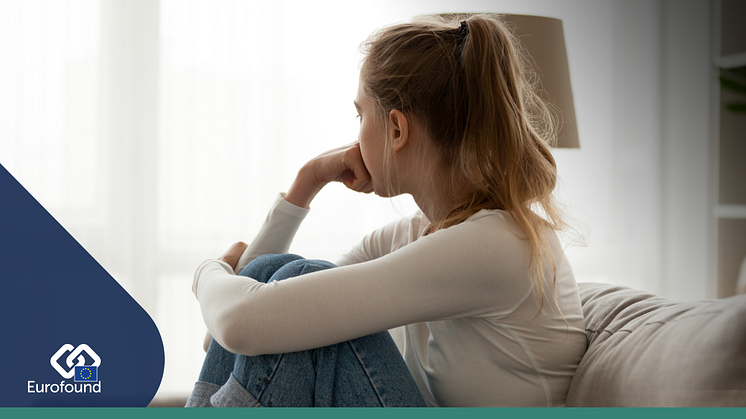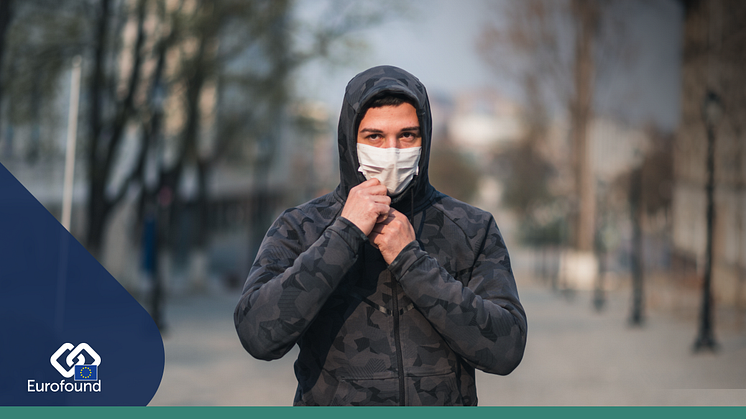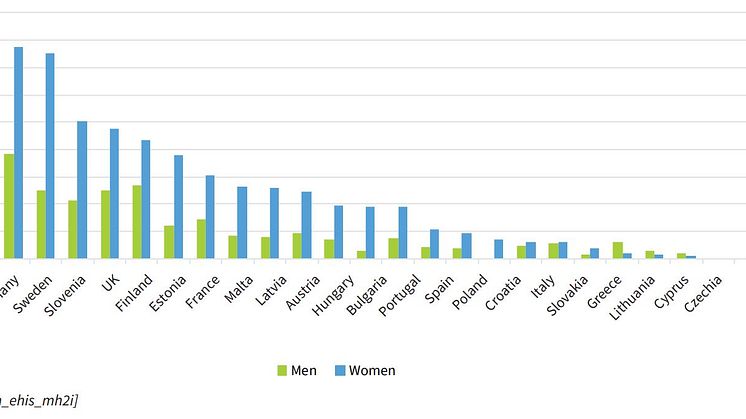
News -
Young Irish women report being the loneliest in the EU
First findings from Eurofound's Living, working and COVID-19 online survey show that, despite comparatively high overall levels of life satisfaction and optimism in Ireland, women aged 18-34 in the country report being the loneliest in the EU. The first wave of Eurofound’s survey was carried out in April, with 85,000 participants – 16,599 of whom were aged 18-34. There were 1,200 full responses from people aged 18-34 in Ireland.
Overall, the survey results show that people in the EU aged 18-34 were more likely to report feeling depressed, lonely, and anxious than those aged 35 and over. They also indicated lower levels of resilience in dealing with problems in life, and a significant decrease in life satisfaction compared to before the Coronavirus (COVID-19) pandemic. Young people had traditionally reported higher levels of well-being and life satisfaction than older age groups – a trend which was reversed by the financial crisis, and appears to have been further exacerbated by the current pandemic.
When the specific results for Ireland are analysed a distinct pattern emerges: young Irish women were more likely to report feeling downhearted and depressed, and lonely, than both their male compatriots and the EU average. This is not aligned with broader EU findings, where women aged 18-34 were slightly less likely than men to report feeling depressed or lonely.
Across all genders surveyed, 16% of EU respondents aged 18-34 reported feeling downhearted or depressed either all of the time or most of the time. The average for young women across the EU was slightly lower. However, it was notably higher for young Irish women at 19%. This trend is even more significant for loneliness: 20% of all respondents aged 18-34 in the EU felt lonely either all of the time or most of the time, with the EU average for women in this age group being lower (18%), but markedly higher for young Irish women at 27% - the highest proportion among the countries with a reliable sample size.
These findings reinforce a previous analysis from Eurofound which highlighted that Ireland had the highest incidence of moderate to severe depressive symptoms among young women (aged 15-24) in the EU. According to 2014 Eurostat data, Ireland had a 17% incidence of moderate to severe depressive symptoms among young women in this age group, and 9% for young men. The EU averages were 7% and 3% respectively.
Speaking about the findings, Mary McCaughey, Eurofound Head of Unit for Information and Communication, said “COVID-19 has had a significant impact on quality of life and well-being across Europe. It should be noted that Ireland has comparatively high quality of life and well-being indicators for the population as a whole. However, the situation with regard to young women needs specific consideration. Unfortunately, these findings reinforce existing data with regards to the health and well-being of younger women in Ireland.”
Data
- Living, working and COVID-19: Loneliness
- Living, working and COVID-19: Downhearted/depressed
Read more
Read further
- Living, working and COVID-19: First findings – April 2020
- Topic page: Youth
- Forthcoming publication: Living, working and COVID-19 - Overview report
Eurofound at EYE Online
On Thursday 28 May, Eurofound will be moderating a discussion at the online edition of the European Youth Event about how the COVID-19 pandemic is affecting young people. The panel discussion will focus on the vulnerability of young people to the economic impacts of the pandemic, as well as associated implications on well-being.
- More info: Eurofound event page
- Facebook Live Debate (16:00 GMT+1/17:00 CET): Being young during the COVID-19 crisis: Impact on work, life and well-being




